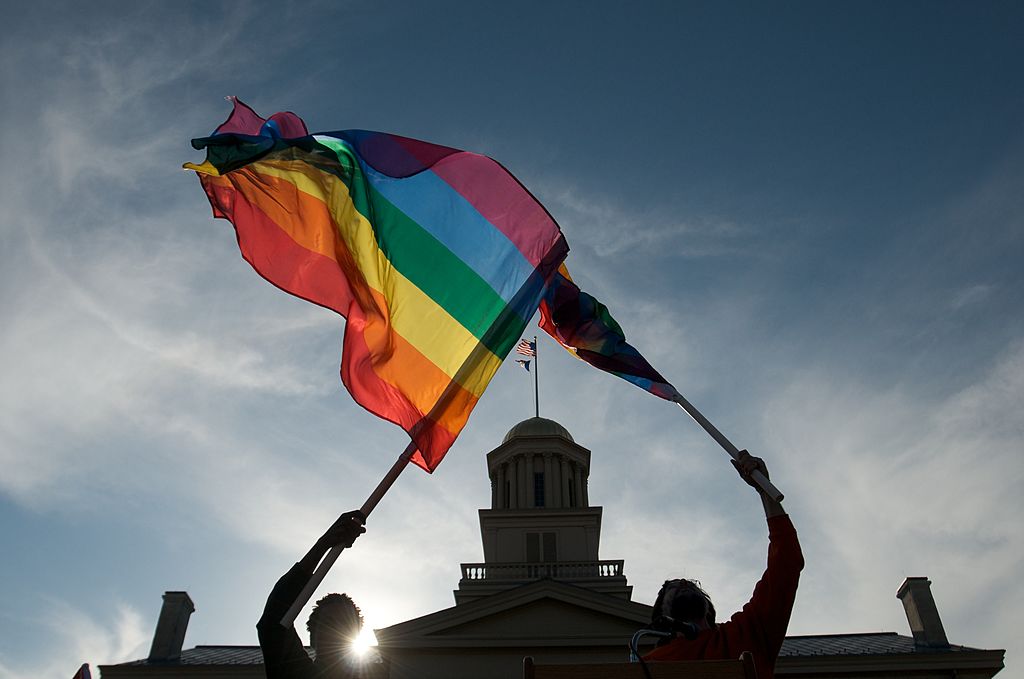When a small US publisher accepted my first book for young adults, ‘Crosstrack’, it wasn’t long before things went pear shaped. The novel follows two teenage athletes, one a middle class American, the other a young Syrian refugee. Apart from cycling ability, they have another thing in common: both are trans.
I’d anticipated a backlash at having the temerity to describe someone outside my own experience, and expected it to involve the Middle Eastern migrant (a la Jeanine Cummings). Yet when my publisher passed the book to a new editor for a final edit, she took exception to some of the views expressed by the other main character, and in particular a comment where she refers to ‘trannies’.
‘The word tranny is offensive to a lot of trans people,’ the editor informed me pompously, suggesting I find a more ‘acceptable’ term. The fact that it was a character (a trans character at that) who used the term didn’t matter; there was a risk that some people who read the book might be offended, and we couldn’t have that, could we? I wouldn’t compromise and withdrew the book – perhaps rashly, as it was the first full-length novel I’d had accepted in a decade.
‘The word tranny is offensive to a lot of trans people,’ the editor informed me pompously
I had similar issues in 2017 when I tried to sell ‘Kidology’, a comic novel about a man who voted to Leave – and whose life subsequently fell apart. My agent said the book was so funny he almost wet himself; yet when I sent it to another agent, she responded prissily: ‘I’m not sure anyone’s ready to laugh about Brexit yet.’
Perhaps unwittingly, that ‘anyone’ gives the game away. In that agent’s worldview, Brexit is unquestionably a tragedy; a view that seems common in the publishing world. How many novels in the last few years have featured positive portrayals of Brexiters? How many, for that matter, feature positive portrayals of white English people, or negative messages about immigration?
This is not to say that I personally think immigration is wholly or even mainly bad (and yes, I voted Remain, though I accepted the result); I’m just bored of reading books by authors who assume all right-minded people agree with them and even fictional characters cannot be allowed to get away with being perceived as reactionary.
These days, that cultural intolerance extends to Shakespeare, some of whose plays are being rewritten to make them less ‘problematic’ (a term I have problems with). In this Age of Intolerance, when even JK Rowling suffers for challenging the term ‘people who menstruate’, would the next Wodehouse, Waugh or Woolf even be published?
This is one of the reasons I gave up reading fiction by living authors: because they seem to churn out the same sanctimonious messages about BLM, XR and LGBTTQQIAAP+. Is this because they genuinely believe them? Do they assume their readership would be affronted by anything that departed from the ‘correct’ line? Or is it because they are worried anything that strays from the path of righteous certitude will be rejected out of hand by right-on agents and publishers, almost all of whom seem to have attended the same posh schools and universities?
Surely one of the purposes of literature is to reflect the world we share, not just to create an echo chamber? If authors only write, read, and publish the Woke views of people like themselves, then the real world – as opposed to the world we’d like to inhabit – becomes ever-more inexplicable. Worse, the creative act itself becomes predictable, unchallenging, safe: The Art of Wishful Thinking.
Defenders of the new hegemony argue that for centuries the world of publishing was the world of rich, white men. It is certainly true there is more diversity among authors now. As someone in perpetual awe of James Baldwin, Chinua Achebe and Ralph Ellison, I recognise that’s progress.
Yet what the literary medium has gained in terms of diverse voices from every cultural and national background, in terms of political diversity, publishing seems less diverse than ever. Every Booker longlist, for example, seems crammed with books about imperialism, racism and genocide – and while there’s nothing wrong with that (Primo Levi is another hero of mine) it seems unlikely that any novel featuring a middle-aged white racist male will ever again make the list.
Which is the only reason I never won the Man Booker, obviously.






Comments